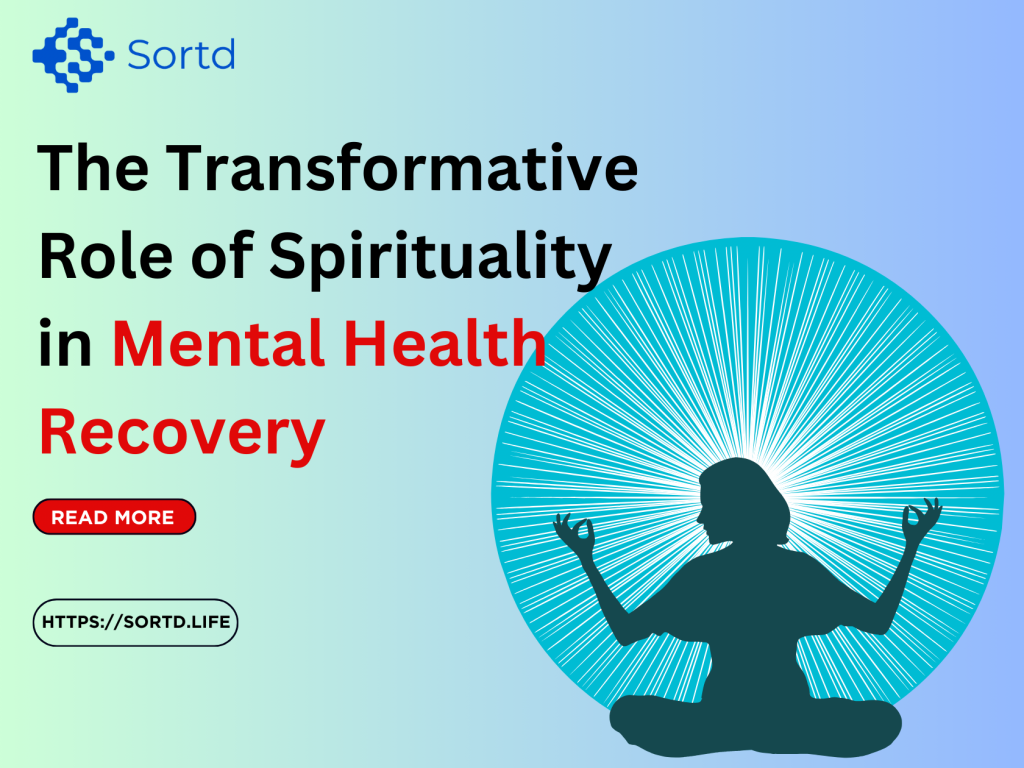
The Transformative Role of Spirituality in Mental Health Recovery
In the pursuit of mental health and well-being, individuals often explore a range of approaches, and one powerful and holistic avenue is spirituality. The connection between spirituality and mental health has been recognized across cultures and traditions, offering a profound influence on the recovery journey.
In this blog, we’ll delve into the transformative role of spirituality in mental health recovery and how it can foster a harmonious balance of the mind, body, and spirit.
1. Finding Meaning and Purpose:
Spirituality provides a framework for individuals to discover a deeper sense of meaning and purpose in their lives. This newfound purpose can be a driving force in mental health recovery, offering motivation and direction.
2. Coping with Stress and Anxiety:
Spiritual practices often involve mindfulness and meditation, which have proven benefits in reducing stress and anxiety. Engaging in these practices promotes a sense of calmness and tranquility, aiding in the management of mental health challenges.
3. Building Resilience:
Spiritual beliefs can foster resilience by providing a sense of support and guidance during difficult times. The spiritual journey often involves overcoming obstacles and teaching individuals to bounce back from adversity with strength and fortitude.
4. Establishing Connection and Community:
Many spiritual traditions emphasize the importance of community and connection. Engaging with like-minded individuals or participating in spiritual communities can combat feelings of isolation, offering a supportive network during the recovery process.
5. Encouraging Self-Reflection:
Spirituality encourages self-reflection, allowing individuals to explore their inner thoughts, emotions, and beliefs. This introspective journey is a valuable aspect of mental health recovery, fostering self-awareness and personal growth.
6. Promoting Gratitude:
Spiritual practices often emphasize gratitude, encouraging individuals to focus on what they have rather than what they lack. Cultivating a grateful mindset contributes to a positive outlook, a key component in mental health recovery.
7. Providing a Moral Compass:
Spiritual beliefs often come with a moral and ethical framework. This compass guides individuals in making choices that align with their values, promoting a sense of integrity and purpose in the recovery journey.
8. Addressing Existential Concerns:
Spirituality can offer solace in the face of existential questions and concerns. Exploring these deeper aspects of life can bring a sense of peace and acceptance, alleviating existential anxiety that may contribute to mental health challenges. Benefits of Therapy for Individuals with Post-Traumatic Stress Disorder
9. Fostering Forgiveness:
Many spiritual traditions emphasize forgiveness as a path to healing. Letting go of resentment and forgiving oneself or others can be a powerful step in the recovery process, promoting emotional well-being.
10. Integrating Mind, Body, and Spirit:
Spirituality views individuals holistically, recognizing the interconnectedness of mind, body, and spirit. Incorporating practices that nourish each aspect fosters a holistic approach to mental health recovery.
Conclusion:
In the realm of mental health recovery, spirituality plays a vital role in providing individuals with a holistic framework for healing. Whether through mindfulness practices, community engagement, or finding purpose, spirituality can offer profound support on the journey to mental well-being. Connect with the expert Mental Health Counselor in London
